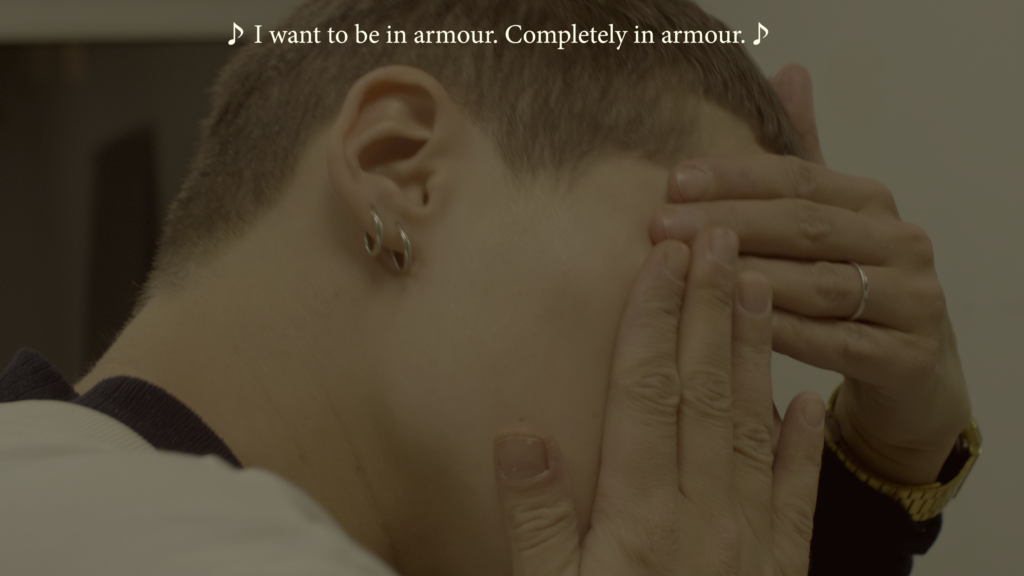Agnė Jokšė
Daring Dreams (Ateitys Ateis)
2022

A mother tongue has a great influence on how people assemble their thoughts and associate the surrounding worlds. In different languages where the vocabulary is split into grammatical feminine and masculine genders, people know by heart if, for example, the chair is something feminine or masculine. However, what are the possibilities for those who wish to address or describe roles, identities or stances outside of the traditional binary division?
In her video Daring Dreams, we see a group of people, young Vilnius-based artists, lying around and dancing in an apartment. They talk in gender neutral Lithuanian about their lives, fears and hopes. Calling it a museum, they denounce the language as it has been until now, and are waiting for a coming rupture in experience, where there won’t be two or three positions, but instead an endless collage of beautiful ways of existence.
Even though I don’t speak or understand Lithuanian myself, I like how it sounds. However, watching the video I realised that the language spoken there sounds different to what I’m used to identifying as the sound of Lithuanian. Is the language that I have felt a mysterious affection for destined to disappear into history? Jokše does not want to change the language altogether, but to widen and expand it, so it would be able to more authentically reflect the plurality of contemporary society. Language renewal is a sensitive subject, as language is tightly bound to a nation’s culture and identity. At the same time, it is important not to forget that language is ultimately a tool, and that in all of its beauty and playfulness it will always remain inadequate in reflecting the inner life of an individual and of society.